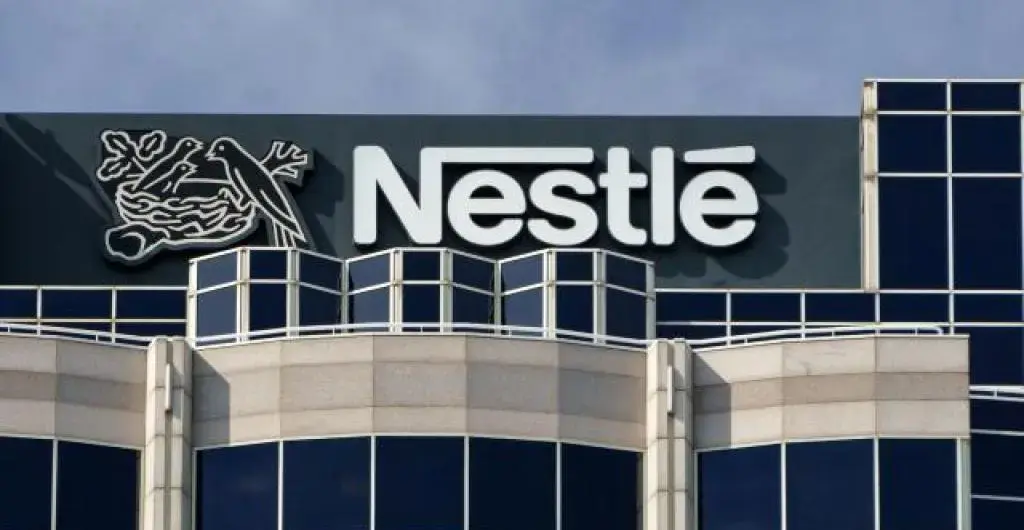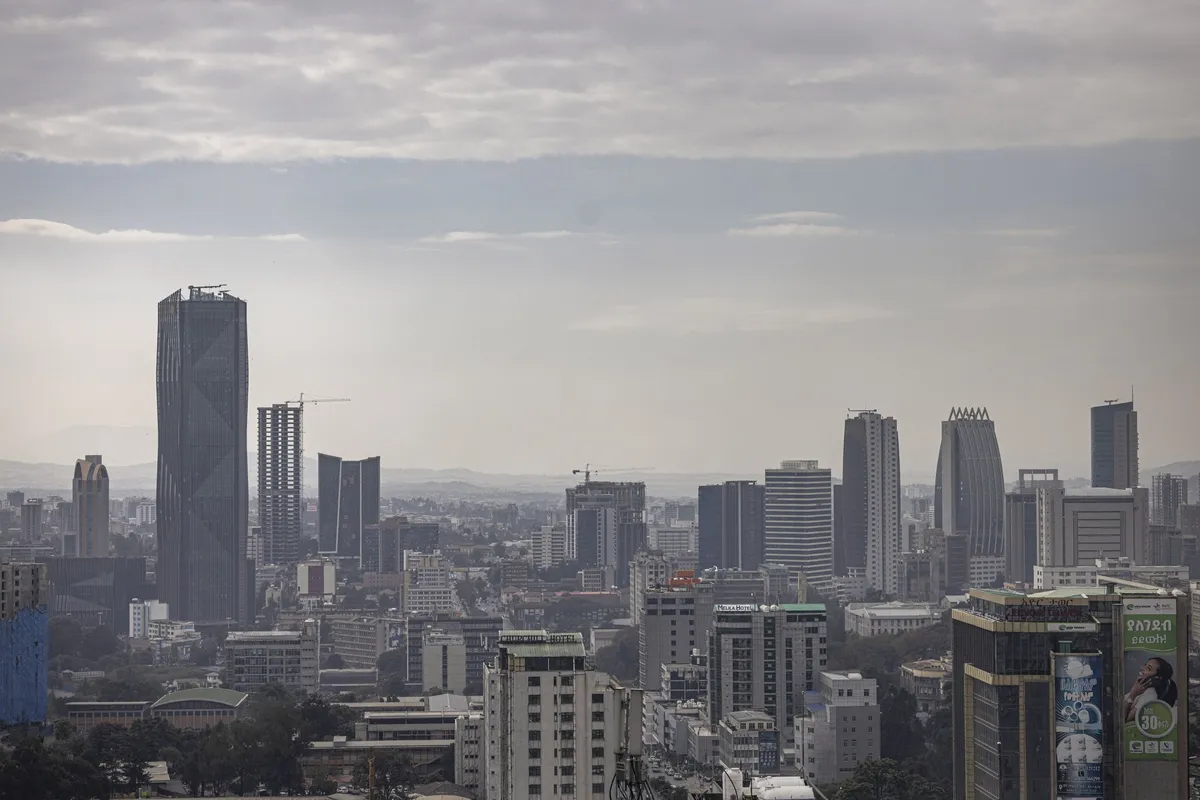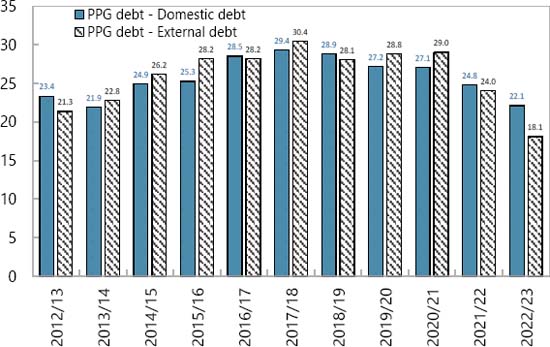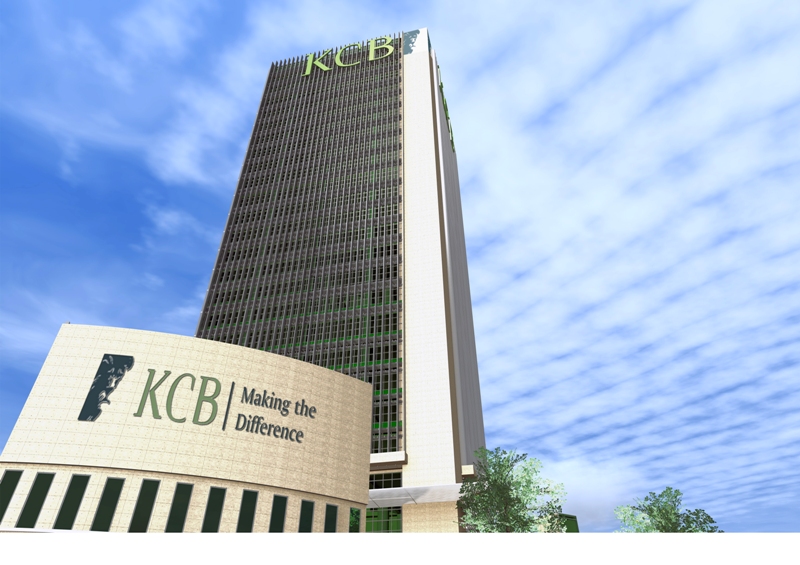Business & Money
Multinationals Retreat from Africa: Challenges in Kenya, SA, Nigeria
The depreciating value of currencies has made it increasingly challenging for multinationals to repatriate profits. In the past decade, Nigeria’s naira has fallen by 88% against the dollar, while the Kenyan shilling has decreased by 34%, and the South African rand has seen a decline of 44%.

Explore why multinationals like Nestlé and Unilever are retreating from Africa due to economic challenges in Kenya, South Africa, and Nigeria
Nestlé SA announced the cessation of production for Nesquik chocolate milk powder in South Africa in August 2023, attributing this decision to declining demand.
A year prior, Unilever Plc halted the manufacturing of home-care and skin-cleansing products in Nigeria to “sustain profitability.”
Pharmaceutical giants Bayer AG and GSK Plc have also outsourced the distribution of their products to independent firms in Kenya and Nigeria.
Over the past few decades, numerous top multinationals have flocked to Africa, attracted by rapid growth, youthful populations, and rising wealth.
However, recent challenges—including plummeting currencies, excessive bureaucracy, unreliable power, and congested ports—have diminished the region’s appeal.
“It doesn’t justify the effort,” remarks Kuseni Dlamini, a former chairman of Walmart Inc.’s African unit, who now leads the American Chamber of Commerce in South Africa. “This should be a wake-up call to African authorities. If you do not have a conducive environment to grow and scale businesses, you will be left by the wayside.”
The retreat of multinationals is most evident in Kenya, South Africa, and Nigeria, the trio of countries typically targeted for initial ventures into the region. Together, they represent 44% of sub-Saharan Africa’s economy and approximately 30% of its population.
This hesitation to expand or maintain current operations frustrates African leaders striving to alleviate unemployment and lessen their dependence on commodities as economic drivers.
President William Ruto of Kenya has stated that manufacturing could elevate the country to middle-income status by 2030, yet poor infrastructure and growing regulation have undermined competitiveness and stunted economic growth. Nestlé, which had contemplated increasing production in Kenya, is instead scaling back operations at its sole facility there.
While it will continue producing select items like Maggi noodles, it is downgrading parts of the facility to package imported foods like Cerelac baby cereal.
In January 2024, Neumann Gruppe GmbH, the world’s largest coffee trader, announced plans to shut down its Kenyan mill and a unit that provided financial and marketing support to small farmers, retaining only its operation that sources coffee beans for export.
The company noted that jobs would be lost, although it did not specify the number, attributing this move to a 2022 government decree that barred companies from both marketing coffee and grinding the beans, compelling them to choose one or the other.
Companies in Kenya are also grappling with increased taxes, particularly a levy on imports of essential raw materials such as cement, metals, and paper.
The Kenya Association of Manufacturers reported that last September, 53% of its members were operating at a quarter of their capacity or less, with 42% anticipating job cuts within six months.\
“All the numbers are negative,” stated Anthony Mwangi, CEO of the Kenya Association of Manufacturers, which represents both domestic and foreign firms. “Those spaces that were used for production, now they are empty spaces. There are warehouses that are importing the same stuff.”
Since 2016, major South African retailers like Mr Price, Shoprite, and Truworths have exited Nigeria, a market they once prioritized for international growth.
Last year, Unilever ceased production of Omo washing powder, Sunlight dishwashing liquid, and Lux soap in Nigeria, opting instead to import these products. In March, Nestlé’s local unit reported its first nine-month loss in twelve years following a significant decline in the local currency.
In South Africa, the continent’s most advanced economy, the once-praised infrastructure has deteriorated.
Power outages have become nearly daily occurrences, while water shortages are rising, with up to 40% of water lost to leaks in some urban networks.
Multinationals have also pointed to a convoluted work permit system that complicates the hiring of foreign executives.
The South African-German Chamber of Commerce stated last year that delays were jeopardizing operations owned by German companies responsible for 100,000 jobs in the country.
“The visa matter spans the entire hierarchy of German business in South Africa,” the group said in a statement. “This is of course not only a concern to German business but also to the country itself.”
The regular production interruptions and the scaling back of manufacturing pose significant challenges for local retailers.
Shoprite Holdings Ltd., Africa’s largest supermarket chain, has had to ramp up its stockpiles to prevent empty shelves, and is constructing additional distribution centers to accommodate more goods.
“This gives you an idea of how constrained the supply chain is,” noted Shoprite CEO Pieter Engelbrecht. “There’s very little investment in production capacity in South Africa amongst the manufacturers, and the multinationals have completely stopped.”
The declining value of currencies has further complicated multinationals’ ability to repatriate profits. Over the past decade, Nigeria’s naira has depreciated by 88% against the dollar, while the Kenyan shilling has weakened by 34%, and the South African rand has dropped by 44%.
This has resulted in diminished spending power for residents, especially concerning imported goods or those containing foreign components.
In response, local manufacturers are increasingly providing more affordable alternatives that replicate global brands.
South Africa’s Bliss Brands (Pty) Ltd. has long marketed its MAQ washing powder in poorer townships surrounding major cities.
Today, this brand is increasingly available at Shoprite’s Checkers outlets and Pick n Pay Stores in affluent suburbs—priced nearly 30% lower than Unilever’s Omo and Skip detergents.
While MAQ hasn’t always been the cheapest option compared to international competitors, it has managed to keep price increases in check, according to Moaz Shoaib Iqbal, a director at Bliss.
“Our structure is more nimble,” he explained. Multinationals are “relying on the equity of their brands to carry them through.”
This retreat has opened the door for lower-cost producers from other emerging nations to challenge the dominant brands with their own manufacturing facilities in Africa.
In Nigeria, locally produced diapers from a Turkish manufacturer are beginning to outpace Procter & Gamble Co.’s Pampers, while a ramen product from a Singapore firm is displacing Nestlé’s Maggi noodles.
“In Africa, the market for pricier items is dwindling,” said Alec Abraham, an analyst at Sasfin Securities in Johannesburg. “We are seeing a shift in ranges to suit more basic needs, which means fewer items as manufacturers match their ranges to income levels.”
Keywords: Multinationals: Africa: Economic challenges:Kenya: Unilever.
Business & Money
Ethiopia Attracts $53.5 Million in Q1 Investments, Creates 8,700 Jobs

: Ethiopia attracts $53.5M in Q1 investments, creating 8,700 jobs. Growth driven
by reforms, with a focus on service and manufacturing sectors.
The Addis Ababa Investment Commission (AAIC) announced a promising start to the
2023/24 fiscal year, with 612 investors registering a combined capital of Birr 2.93 billion
($53.5 million) in the first quarter.
This reflects a 13% growth compared to the same period last year, signalling sustained
investor confidence despite economic challenges.
Speaking at a press briefing on November 30, AAIC’s Director of Communication,
Meseret Woldemariam, credited the growth to policy reforms and enhanced investor
facilitation.
“Our efforts to streamline investment processes and resolve bottlenecks are yielding
results. We remain committed to ensuring investors thrive in Addis Ababa,” she said.
SECTORIAL CONTRIBUTIONS
The majority of the newly licensed investors are in the service and manufacturing
sectors. The service sector includes hotels, tourism, and IT ventures, while the manufacturing
investments span electrical products, steel, wood, and textiles.
These investments have generated 8,707 jobs, comprising 770 permanent and 490
temporary positions created by newly licensed entities.
The AAIC has also initiated field monitoring visits to ensure operational readiness. “Our
team works closely with new investors to address challenges promptly, enabling faster
project rollout,” Meseret added.
CHALLENGES AND REFORMS
Investors continue to face hurdles such as foreign currency shortages and workspace
availability. However, the commission highlighted progress due to macroeconomic reforms,
particularly improving foreign currency access.
“We are actively collaborating with the Mayor’s office to address workspace issues
through professional support in rental solutions and operational guidance,” Meseret
explained.
Recent reforms in the National Bank of Ethiopia’s foreign exchange policy have also
been pivotal. In October, the central bank announced a 30% increase in forex allocation to priority sectors, a move welcomed by stakeholders.
EXPANSION PLANS AND PROJECTIONS
The AAIC aims to capitalise on the momentum, targeting Birr 15 billion ($274 million) in
investments by the end of the fiscal year. A new digital investment portal, launched in November, promises to reduce registration times by 40% and improve transparency.
“We are confident these initiatives will not only attract more investors but also deepen
the trust of existing ones,” Meseret concluded.
INVESTOR SENTIMENT
Prominent business leader Ahmed Yusuf, who recently launched a $3 million IT hub in
Addis Ababa, praised the commission’s efforts.
“The improvements in investor services and forex allocation are encouraging. We hope
to see more streamlined processes for licensing and operations,” he remarked.
As Ethiopia seeks to position itself as a regional investment hub, sustained efforts in
addressing investor concerns and enhancing infrastructure will be critical.
Business & Money
Ethiopia Eyes December Debt Restructuring After IMF Review

: Ethiopia’s December IMF review may unlock long-awaited debt restructuring,
crucial for economic reforms and stalled projects like the Koysha Hydroelectric
Dam.
Ethiopia’s much-anticipated debt restructuring prospects could gain clarity this
December, as the country awaits the second review under its four-year International
Monetary Fund (IMF) program.
The Extended Credit Facility (ECF), launched in August 2023, remains central to
Ethiopia’s economic reform and debt relief efforts.
Progress Toward Debt Treatment
Last week, Ethiopian authorities reached a staff-level agreement with the IMF tied to the
second review. A comprehensive report on this review is set for release in December, a month many stakeholders, including the National Bank of Ethiopia (NBE), view as pivotal for
advancing debt treatment plans.
“Debt restructuring stands at the centre of our reform agenda. With the report’s release,
we expect rescheduling talks to gain momentum,” said Habtamu Workneh, Director of
External Economic Analysis & International Relations at the NBE.
He added that discussions are focusing primarily on extending maturity dates for Ethiopia’s debts.
IMF Support and Engagements with Creditors
The IMF has provided Ethiopia with USD 2.5 billion under its current fiscal program,
offering critical support to the country’s macroeconomic stabilisation efforts.
In parallel, Ethiopian authorities have engaged with Eurobond holders and the Official
Creditors Committee (OCC).
A debt restructuring proposal was submitted to Eurobond holders in July 2024, following
key discussions in December 2023 and May 2024.
Additionally, a global investor update held on October 1, 2024, highlighted the nation’s
ongoing economic challenges and progress in creditor negotiations.
Shifting Debt Landscape
The government has reported improvements in its debt profile. Planning and Development Minister Fitsum Assefa (PhD) announced that Ethiopia had ceased relying on commercial loans and direct borrowing from the central bank.
She noted a significant drop in the external debt-to-GDP ratio to 13.7 per cent, though
the IMF’s Debt Sustainability Analysis, published in July 2024, pegged the ratio at 18
per cent as of June 2023.
External debt accounts for 45 per cent of Ethiopia’s total public and publicly guaranteed
debt, the report stated.
Financing Challenges Persist
Despite these reforms, Ethiopia’s financing challenges remain acute.
The government is seeking nearly USD 1 billion to complete the Koysha Hydroelectric
Dam project, which has stalled at two-thirds completion due to funding shortfalls.
The project is a critical component of Ethiopia’s development strategy, but its delays
underscore the broader fiscal pressures the country faces.
Expert Views on Economic Outlook
While Ethiopian officials are optimistic about the December review as a turning point,
analysts caution that real progress hinges on creditor consensus and the government’s
ability to implement reforms.
Critics have also raised concerns about inflated GDP growth figures, which they argue
may distort Ethiopia’s true debt sustainability.
Looking Ahead
The IMF review, coupled with Ethiopia’s active engagement with creditors, could mark a
a significant step forward in its quest for debt relief.
December will likely be a defining month for the country’s economic future, with broader
implications for its ability to attract investment and complete critical infrastructure
projects.
Business & Money
KCB Group Surpasses Equity with US$ 342.31 Million Nine-Month Profit

: KCB Group reports Sh44.5B ( US$ 342.31) nine-month profit, outpacing
Equity Bank. Learn about its 49% growth, challenges, and stock performance this
year.
KCB Group Plc has outperformed Equity Bank to cement its position as Kenya’s leading
lender, posting a net profit of Sh44.5 billion for the nine months ending September
This represents a 49% year-on-year growth, surpassing Equity Bank’s Sh37.5
billion profit during the same period.
Profit Growth Driven by Core Business Performance
The remarkable profit growth was fueled by higher earnings from both interest and non-
interest income streams. KCB’s diverse revenue base has been pivotal in maintaining
its dominance in the competitive banking sector.
Non-Performing Loans a Key Concern
Despite the impressive profit growth, KCB’s non-performing loan (NPL) ratio rose to
18.5%, compared to 16.5% last year. This increase highlights persistent challenges in
managing credit risk, with Chief Financial Officer Lawrence Kimathi acknowledging it as
a “pain point” for the bank.
KCB Stock Outshines Peers on NSE
KCB’s strong financial performance has translated into exceptional stock market results.
The bank’s stock has risen 78.8% year-to-date, making it the best-performing banking
stock on the Nairobi Securities Exchange (NSE).
Plans to Sell National Bank of Kenya
Earlier this year, KCB announced plans to sell its struggling subsidiary, National Bank of
Kenya (NBK), to Nigeria’s Access Bank. While Nigerian regulators have approved the
deal, it is still awaiting clearance from Kenya’s Central Bank. The sale aims to
streamline KCB’s operations and address losses at NBK.
CEO Paul Russo Optimistic About Year-End Performance
“The journey has not been without its hurdles, but our ability to walk alongside our
customers has driven our success,” said KCB CEO Paul Russo. He expressed
confidence in closing the year on a high note, leveraging improving economic conditions
across the region.
Key Figures at a Glance
● Net Profit: Sh44.5 billion (+49%)
● Non-Performing Loan Ratio: 18.5% (up from 16.5%)
● Stock Performance: +78.8% year-to-date
KCB’s strong performance underscores its resilience in navigating challenges and its
commitment to sustaining growth in Kenya’s banking sector.
-

 Business & Money9 months ago
Business & Money9 months agoEquity Group Announces Kshs 15.1 Billion Dividend Amid Strong Performance
-

 Politics4 months ago
Politics4 months agoFred Okengo Matiang’i vs. President William Ruto: A 2027 Election Showdown
-

 Politics3 months ago
Politics3 months agoIchung’wah Faces Mt. Kenya Backlash Over Gachagua Impeachment Support
-

 Politics6 months ago
Politics6 months agoPresident Ruto’s Bold Cabinet Dismissal Sparks Hope for Change
-

 Politics6 months ago
Politics6 months agoKenya Grapples with Investor Confidence Crisis Amid Tax Protest Fallout
-

 Politics6 months ago
Politics6 months agoPresident Ruto’s Lavish Spending Amid Kenya’s Economic Struggles Sparks Outrage
-

 Business & Money2 months ago
Business & Money2 months agoMeet Kariuki Ngari: Standard Chartered Bank’s new CEO of Africa. What’s Next?
-

 Politics5 months ago
Politics5 months agoJohn Mbadi Takes Over Kenya’s Treasury: Challenges Ahead





